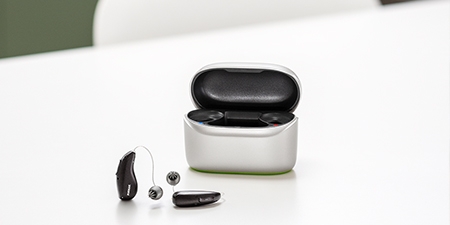Learn the Risks of Avoiding Hearing Tests

Learn the Risks of Avoiding Hearing Tests
10 min
Published June 9, 2025
A hearing evaluation is extremely valuable as it provides an assessment of the sensitivity of your sense of hearing. A hearing screening test is usually performed by an audiologist or by another hearing care professional using an audiometer. The audiometer helps to determine your hearing sensitivity at various sound frequencies.
The most common hearing screening tests
Why do people avoid getting hearing tests?
Several reasons explain why people avoid getting their hearing tested. First, instead of considering hearing tests as a screening, most think of them as exams for those with age-related troubles. They don't realize that audiologists can uncover various medical problems well beyond hearing loss when they test your ears.
Another reason for the lack of testing is that many people are unaware of having any hearing issues. Since hearing loss mainly occurs gradually and over time - such as with age-related hearing loss -, it is not always easy to recognize the severity of the problem.
Finally, facing the reality of declining hearing abilities can be difficult. Some may feel embarrassed or concerned about the possible stigma associated with the condition, while others may dislike the idea of wearing a hearing aid.
What are the risks of not having a hearing test?
Missing the diagnosis of underlying medical conditions
One of the top risks of not seeing an audiologist to get your ears checked is that you may miss the diagnosis of certain medical conditions. For instance, diabetes may be at the root of hearing loss, which means addressing diabetes may help resolve your hearing problem.
High blood pressure is another medical condition that has been linked to tinnitus (ringing in the ear) and loss of hearing. Getting a hearing test done may help your doctor identify the underlying cause and recommend treatment for a medical condition you did not even know you had.
Without regular hearing tests, you won't know how bad your hearing loss actually is and if it is getting worse
Many people get their vision checked annually to track their eye health. Approaching hearing tests in the same manner is beneficial as it allows you to keep a close tab on how quickly your hearing loss progresses. Book regular appointments with your hearing professional and avoid suffering unnecessarily from hearing impairment.
Your audiologist can compare your past audiograms to your current ones. If there is any sign of concern, i.e., worsening hearing loss, your hearing specialist can alert you, take the necessary actions, and quickly address concerns such as ear infection, earwax buildup, problems with your ear canal, eardrum, or noise-induced hearing loss.
As you can see, the downside of not getting a hearing test done is much greater than getting screened. In fact, catching a mild hearing issue early can help prevent your hearing loss from getting worse. A knowledgeable hearing care professional can guide you through the process and help you find the best possible solution for you.




